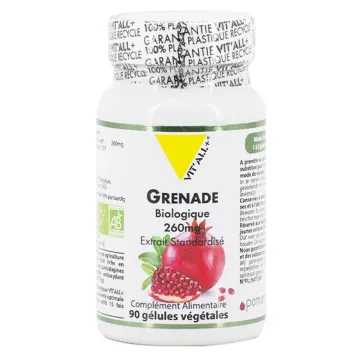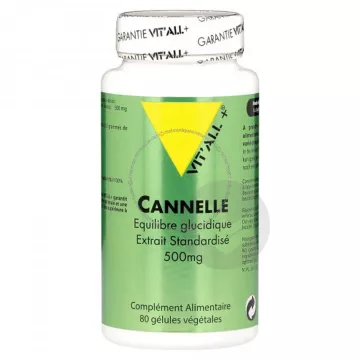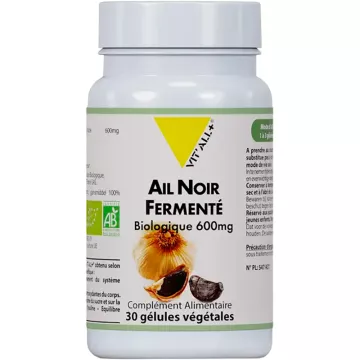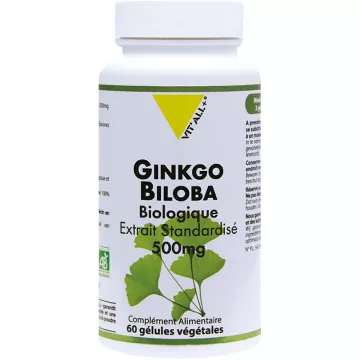



An antioxidant is a molecule capable of preventing or slowing down the oxidation of other molecules. Oxidation is a chemical process that can produce free radicals, leading to chain reactions that damage the body's cells. Antioxidants protect the body from this damage by neutralizing free radicals. They therefore play a crucial role in preserving cellular health and preventing chronic disease.
What are the main sources of antioxidants?
Antioxidants are abundantly present in a variety of foods, notably fruits and vegetables. Notable sources include berries, nuts, dark chocolate, green leafy vegetables, carrots and citrus fruits. Other important sources include green tea, red wine (in moderation), and certain omega-3-rich fish. For a balanced diet, we recommend including a wide range of these foods.
What are the health benefits of antioxidants?
Antioxidants offer several health benefits, including:
How can I get more antioxidants in my diet?
To increase your antioxidant intake, follow these tips:
Are there any risks associated with excessive antioxidant consumption?
Although antioxidants are beneficial, excessive consumption, especially in supplement form, can be detrimental. High antioxidant intake can interfere with certain medications and is not recommended for everyone, especially those with certain medical conditions. It's essential to consult a healthcare professional before starting any antioxidant-rich diet, or before adding supplements to your diet.
What's the difference between synthetic and natural antioxidants?
Antioxidants can be divided into two categories: natural and synthetic. Natural antioxidants are found in plant and animal foods and include vitamins (such as vitamins C and E), minerals (such as selenium) and phytochemicals (such as flavonoids and carotenoids). Synthetic antioxidants, on the other hand, are chemically manufactured and often added to processed foods to extend their shelf life. Although synthetic antioxidants have similar antioxidant effects, research suggests that natural antioxidants offer additional health benefits due to their presence in foods that provide a wider range of nutrients.
Can antioxidants help with weight management?
There is no direct evidence to suggest that antioxidants themselves contribute to weight loss. However, a diet rich in antioxidants, generally consisting of fruits, vegetables, whole grains and nuts, can promote a healthy lifestyle and contribute indirectly to weight management. These foods are rich in fiber, contributing to a longer feeling of satiety, which can help reduce overall calorie intake.
How do antioxidants influence skin aging?
Antioxidants play a significant role in protecting the skin from sun damage and pollution, both of which accelerate skin ageing. By neutralizing free radicals, antioxidants can help prevent damage to collagen and elastin, reducing the appearance of wrinkles and age spots. Foods rich in antioxidants, as well as skincare products containing antioxidants such as vitamin C, vitamin E and beta-carotene, can contribute to younger, healthier-looking skin.
Can antioxidants improve sports performance and recovery?
Research indicates that antioxidants can play a role in improving sports performance and recovery after exercise. During intense physical activity, the production of free radicals in the body increases, which can lead to oxidative stress and muscle damage. Antioxidants can help reduce this damage, promoting faster muscle recovery and reduced fatigue. However, it's important to note that over-consumption of antioxidants, particularly in supplement form, could reduce the benefits of exercise on the body. A balanced diet rich in natural antioxidants is therefore recommended for athletes and those with an active lifestyle.
Are there any known interactions between antioxidants and drugs?
Yes, some antioxidants can interact with drugs, influencing their efficacy or causing undesirable side effects. For example, vitamin E, a powerful antioxidant, can increase the risk of bleeding when taken in conjunction with anticoagulants such as warfarin. Similarly, vitamin C can interfere with certain types of chemotherapy. It's essential to consult a healthcare professional before taking antioxidant supplements, especially if you're on medication. Open communication with your doctor will ensure that your supplement regimen supports your health without compromising the effectiveness of your medications.